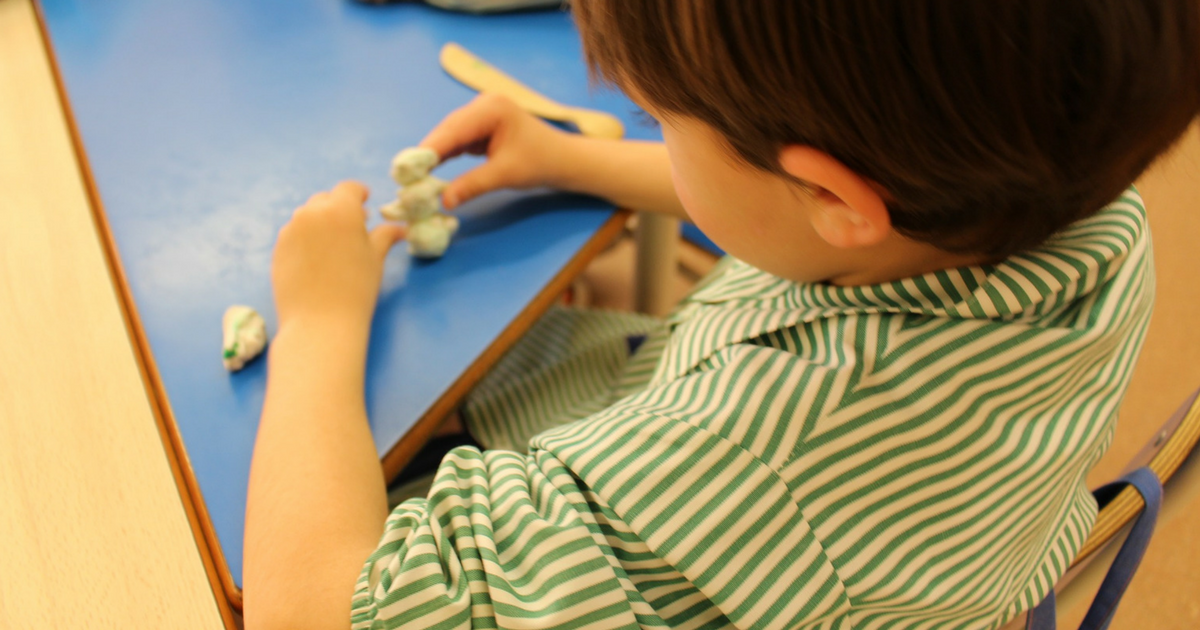
When babies stop being babies, one of the main changes families have to face up to and which most affect the children themselves and their parents’ daily routine is when they start school. “Big school” is what we call it to try and encourage our little ones and convince them that they will be going to a wonderful place that is great fun, for children that are getting big like they are.
Finding the right school is no easy task. The characteristics of the school itself and the family’s circumstances all influence the decision.
Nowadays more and more schools hold open days and show their most accessible side in order to answer parents’ doubts and concerns, as they are more and more involved in the education of their children.
So that you can prepare yourself for this meeting and look before you leap, here is our list of key points, which stitch by stitch will help you choose the best school for your child; your little one who will soon enter a new phase in life, something really important in his intellectual and emotional development.
Key points for choosing a right school without losing your mind
- The school’s academic level. Find out if the school holds any quality certificates, which means that they are audited on a regular basis to check that they comply with the requirements defined in the certificate conditions.
And if the school goes right up to the last year before university, you could ask what the average percentage of passes and the marks obtained are in the university access exams. That will give you an idea of how well prepared the children from this school are for the requirements in official exams. - The educational project. This is one of the major points, as it has the most influence on the child’s educational development; as a parent you should feel identified and comfortable with it for the education of your child. Ask about the learning model, if they have teaching guidance, and if they detect problems in learning or behaviour, if they have support classes when necessary, etc.
Moreover, there are some subjects that are not taught in the same way at different schools, and which may be important for children’s intellectual and emotional development. Ask if they stick to the official curriculum, to what extent they value music, technology, sports, art etc. or for example, which projects they work with in pre-school.
If the school has an alternative teaching method, check that it is certified by the Ministry of Education and that the certificate obtained is perfectly standardized. - Languages. It is now very frequent for many schools – and they don’t have to be private ones – to use several foreign languages in the classes they teach. Ask which languages your child will be able to study at the school and what method they use, and which subjects are taught in which languages.
- The number of children per class. Although there is a maximum number of children per class dictated by law in each self-governing region, in some areas there might be schools with a lower number per class. This can influence how classes go in the school day. Take it into account and don’t forget to ask about this at the schools you are interested in.
- There are administrative matters such as the timetable, whether they have a canteen or an early morning kindergarten service, which depending on a family’s own working timetable could be decisive. You have to pay more for these services in both state and private schools, but having the possibility could influence your final decision if other points which are more important for your child’s development are all equally good.
- Close to home or school bus. Another aspect that often leads to doubt is how good it is for the school to be closer to home. It is true that if it is, it will make your child’s daily life that much easier, as he will be able to get up a bit later and go to school by himself at an earlier age. It also makes it easier to go an after-school club in the area, as there is generally a lot on offer. But if the closest school doesn’t meet the requirements you value most, you should always send your child to the one you prefer, without worrying about how far away it is. But again, if no-one in your family can take them every morning to a school that is further away, make sure there is a school bus that comes to the area you live in.
- After-school clubs. Schools generally have sports, leisure and art clubs, which enable children to develop their skills and talents in these fields. Make sure the school has this kind of offer, just in case you want to send your child to a club at some time.
With these tips you can get down to work. Get a pen and paper and go to the open days at the schools you like most. Take your list of essential points, compare the finalists, and there you have it – the rest is a piece of cake.

